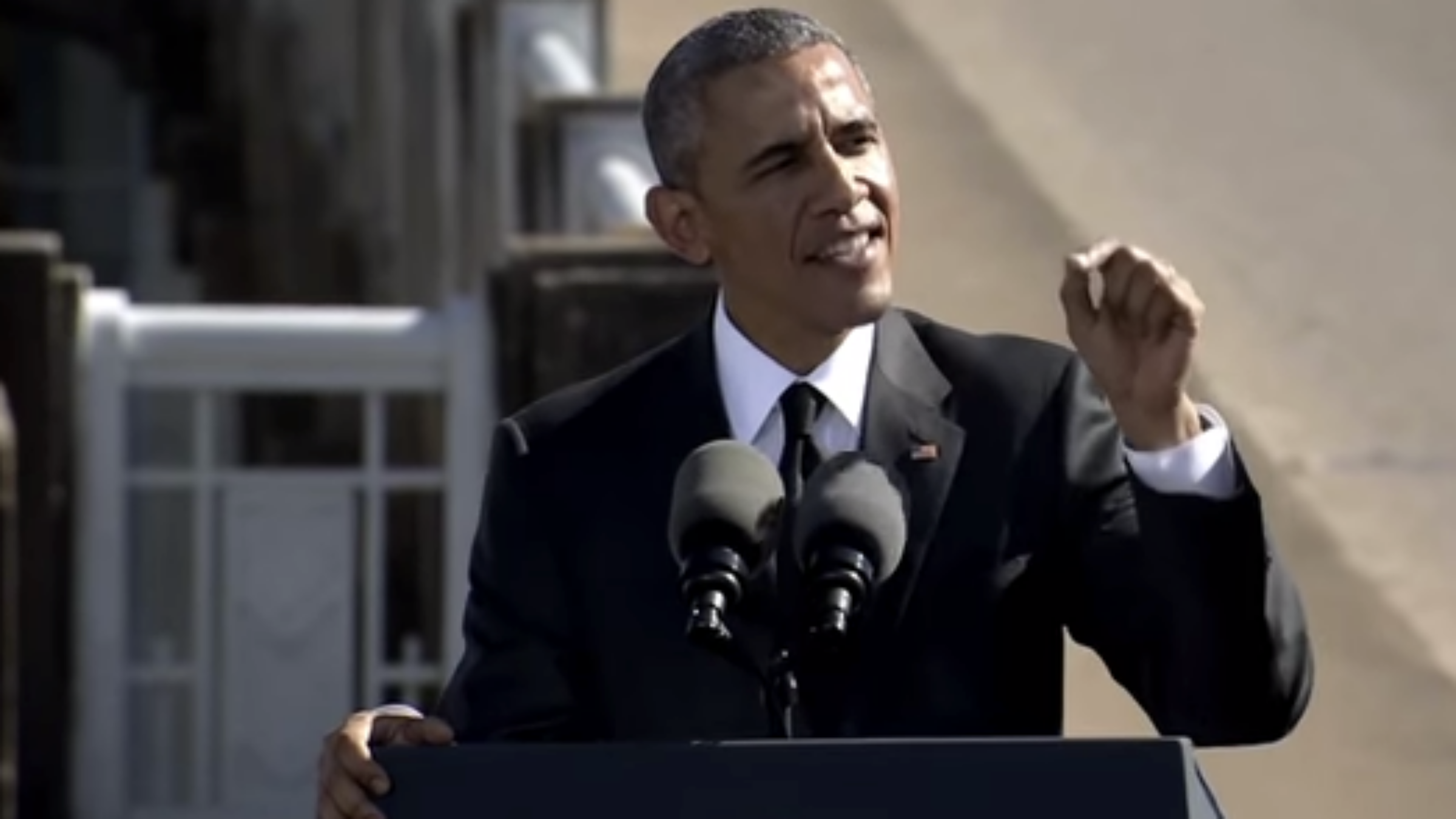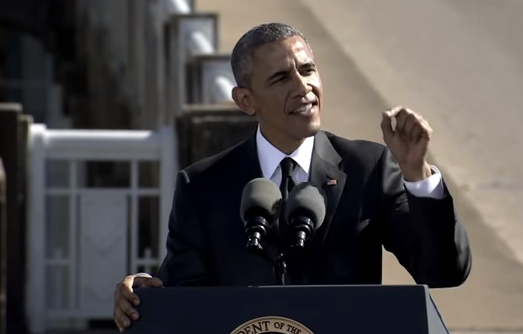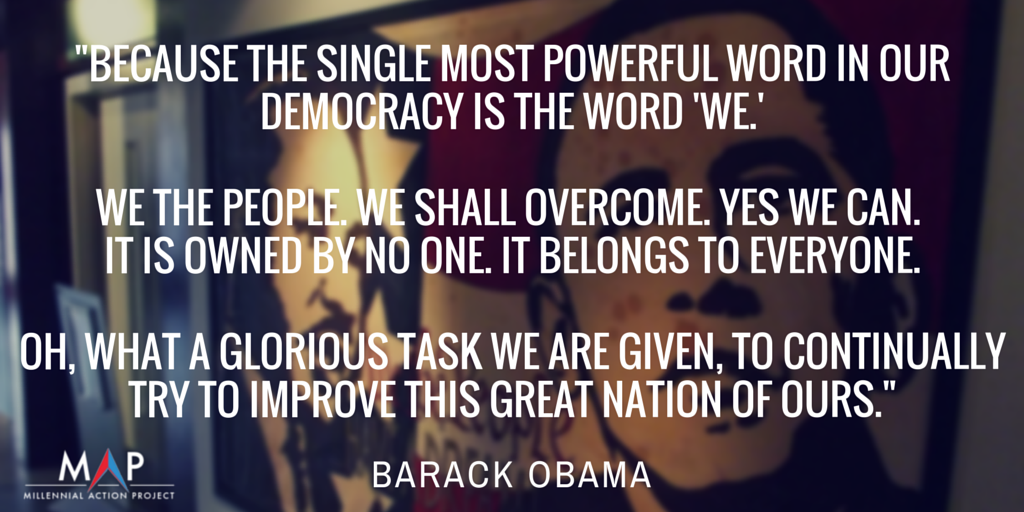Obama’s Selma Speech Calls on Millennials to Value Civil Rights
March 11, 2015
A humbled and energized President Barack Obama declared his faith in the next generation to embrace the unique passion that drove the civil right activists of the Voting Rights Movement 50 years beforehand.

Editor’s Note: The Millennial Voices series is written by and for Millennials to foster nonpartisan discussion. Kristin Fretz is the Digital Communications Manager at MAP. The opinions expressed in this commentary are solely those of the author.

On the 50th anniversary of the “Bloody Sunday” march in Selma, Alabama, President Barack Obama delivered a humbling narrative of the courageous and visionary leadership from Rep. John Lewis and hundreds of civil rights activists — whose acts of nonviolent civil disobedience led to the passage of the landmark Voting Rights Act of 1965.
Standing at the foot of the Edmund Pettus Bridge — where demonstrators suffered brutal beatings from state troopers on March 7, 1965 — Obama called on today’s young people to embody the spirit and faith these Americans had in overcoming the injustices they faced.
“It’s the idea held by generations of citizens who believed that America is a constant work in progress; who believed that loving this country requires more than singing its praises or avoiding uncomfortable truths. It requires the occasional disruption, the willingness to speak out for what’s right and shake up the status quo.”
— President Barack Obama
Young people have consistently been at the forefront of transformational changes in America—beginning with our country’s Founding Fathers. Obama called for our generation’s patriotism to also be critical of America’s flaws and to fight to see them perfected.
“What greater expression of faith in the American experiment than this; what greater form of patriotism is there; than the belief that America is not yet finished, that we are strong enough to be self-critical, that each successive generation can look upon our imperfections and decide that it is in our power to remake this nation to more closely align with our highest ideals?”
— President Barack Obama

Overall, Obama reminded us of an America that welcomes and encourages revolutionary ideas to form “a more perfect union.” Millennials — with their entrepreneurial and collaborative spirit driving their desire for impact-oriented work — are well-suited to be the next generation passionately driven to secure equal opportunity for all citizens.
“You are America. Unconstrained by habits and convention. Unencumbered by what is, and ready to seize what ought to be. For everywhere in this country, there are first steps to be taken, and new ground to cover, and bridges to be crossed. And it is you, the young and fearless at heart, the most diverse and educated generation in our history, who the nation is waiting to follow.”
— President Barack Obama
Kristin Fretz is the Digital Communications and Outreach Manager at MAP. A passionate advocate for Millennial interests, she previously interned at think tanks including the Roosevelt Institute and Third Way. Kristin graduated magna cum laude from the University of Delaware with a BA in Public Policy and received the 2014 Outstanding Public Policy Student Award.
As a tax-exempt nonprofit organization governed by Section 501(c)(3) of the Internal Revenue Code, Millennial Action Project (MAP) is generally prohibited from attempting to influence legislative bodies in regards to policy and legislation. It is important to note guest authors frequently take firm stances on issues and policy matters that are currently being debated by policymakers; when they do, however, they speak for themselves and not for MAP, its board, council or employees.






Join 1,800+ BIPARTISAN LEADERS NATIONWIDE
Be a part of a network of lawmakers committed to governing effectively, passing more representative public policy, and increasing public trust in democracy.